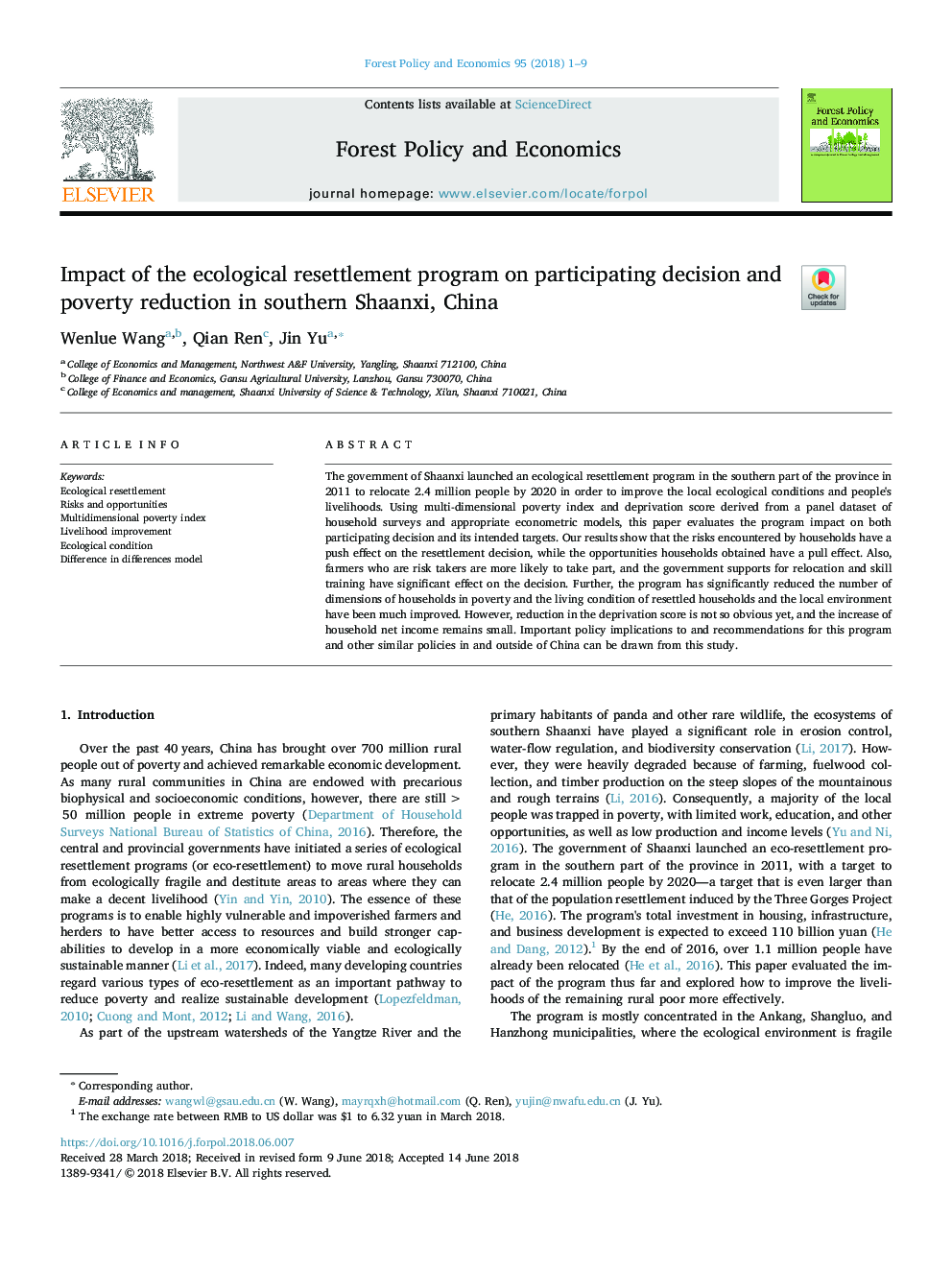| Article ID | Journal | Published Year | Pages | File Type |
|---|---|---|---|---|
| 6544698 | Forest Policy and Economics | 2018 | 9 Pages |
Abstract
The government of Shaanxi launched an ecological resettlement program in the southern part of the province in 2011 to relocate 2.4 million people by 2020 in order to improve the local ecological conditions and people's livelihoods. Using multi-dimensional poverty index and deprivation score derived from a panel dataset of household surveys and appropriate econometric models, this paper evaluates the program impact on both participating decision and its intended targets. Our results show that the risks encountered by households have a push effect on the resettlement decision, while the opportunities households obtained have a pull effect. Also, farmers who are risk takers are more likely to take part, and the government supports for relocation and skill training have significant effect on the decision. Further, the program has significantly reduced the number of dimensions of households in poverty and the living condition of resettled households and the local environment have been much improved. However, reduction in the deprivation score is not so obvious yet, and the increase of household net income remains small. Important policy implications to and recommendations for this program and other similar policies in and outside of China can be drawn from this study.
Keywords
Related Topics
Life Sciences
Agricultural and Biological Sciences
Forestry
Authors
Wenlue Wang, Qian Ren, Jin Yu,
